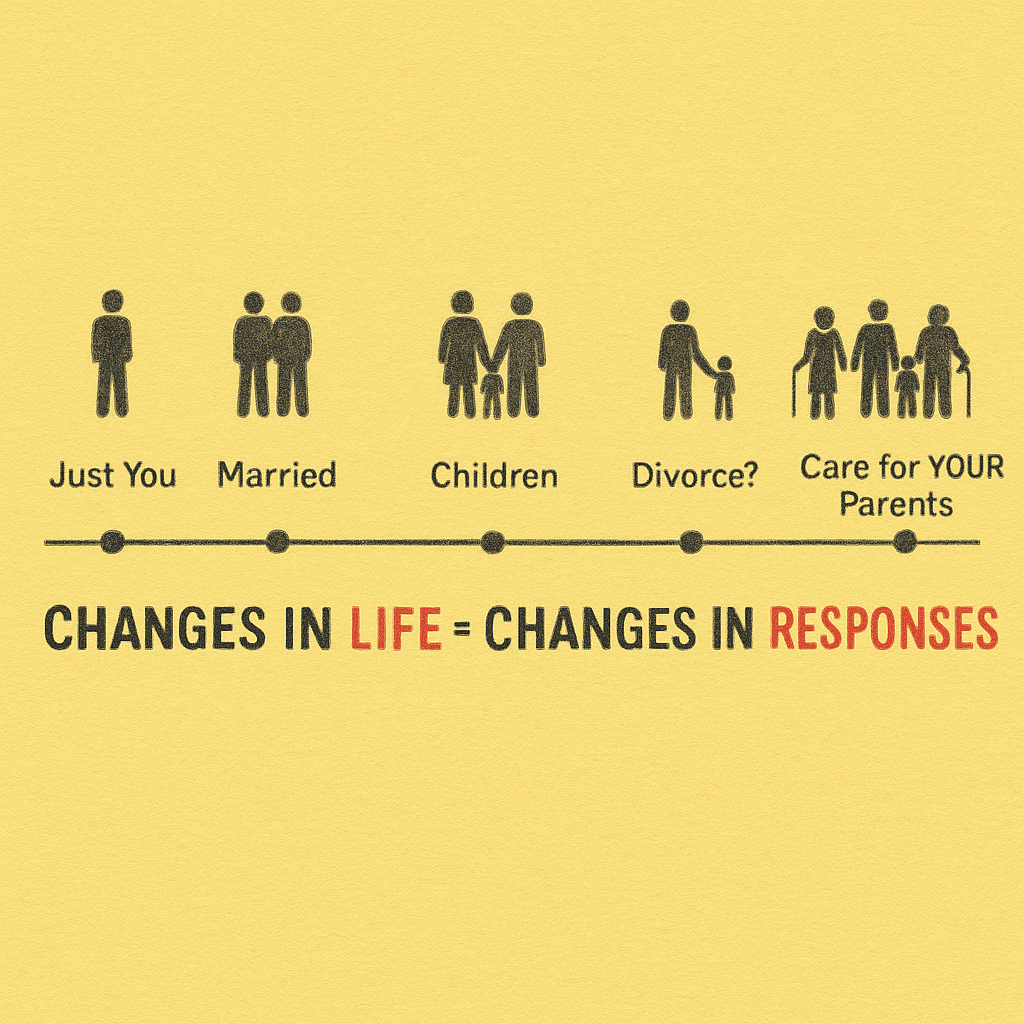When you first stepped into your uniform, fresh from training, every call was about protocols and procedures. Your mind ran through checklists, calculated drug doses, remembered search patterns, or otherwise focused on the technical aspects of the job. But somewhere along the way, something changed. The calls stayed the same, but your response to them evolved in ways you never expected.
The Technical Beginning
In those early days, your responses were clinical and precise. As an EMT, you calculated vital signs and ran through algorithms. As a firefighter, you thought about gallons per minute and ventilation points. The job was about mastering skills and following procedures. Patients were cases to solve, and scenes were puzzles to navigate.
This technical focus served you well. It allowed you to build confidence, develop competence, and establish yourself as a reliable responder. But life has a way of adding layers to everything we do, especially in first response work.
When Life Adds Emotional Weight
The transformation usually happens gradually, often triggered by major life transitions. Each new chapter in your personal story becomes a lens through which you view every call.
The Marriage Effect
When you get married, domestic calls suddenly hit differently. You start seeing your own relationship reflected in the chaos before you. That couple arguing in the kitchen? Their pain becomes more than just another call, it becomes a window into what relationships can become when stress overwhelms connection. You begin to understand the complexity of intimate relationships in crisis because now you have one of your own to protect and nurture.
Parenthood and Pediatrics
Then perhaps you have children, and pediatric calls transform completely. Every teddy bear on scene looks like the one sitting on your child’s bed at home. The infant with breathing difficulties could be your baby. The playground injury could be your toddler. What once required only medical assessment now carries the weight of parental understanding.
You find yourself working harder on these calls, staying later, checking and double-checking everything. The technical protocols remain the same, but your emotional investment deepens exponentially.
Walking Through Personal Crisis
Maybe you experience divorce, and suddenly those family dispute calls carry weight they never did before. You understand the pain in that house on a whole new level. The anger, the hurt, the complexity of untangling lives that were once intertwined, it’s no longer foreign territory. You’ve been there, felt that, lived through the aftermath.
Caring for Aging Parents
Then comes the stage where you’re caring for aging parents. Every elderly fall victim becomes personal. That 78-year-old who slipped in the bathroom could be your mom or dad struggling to maintain their independence. You see their dignity, their fear, their frustration with bodies that no longer cooperate with their minds.
The Accumulating Impact
The calls haven’t changed. The protocols haven’t changed. What’s changed is you. Your life experiences have added layers of understanding and emotion to every response.
When that pediatric call hits harder because you just tucked your own kids into bed last night? That’s normal. When that elderly assist call brings tears to your eyes because it reminds you of your own parents? That’s normal, too. When domestic disputes trigger memories of your own relationship struggles? That’s the human side of first response work.
Understanding the Pattern
This progression isn’t just about gaining experience, it’s about gaining empathy through lived experience. Time in service isn’t the only factor in how calls affect you. Where you are in your life journey matters just as much.
A 20-year veteran might handle pediatric calls with ease until they become a grandparent. A rookie might struggle more with elder care calls if they’re currently watching a parent decline. Your personal timeline intersects with your professional responses in ways that can’t always be predicted or controlled.
Recognizing this evolution is crucial because it means your coping strategies need to evolve too. What worked when you were single and focused solely on technical skills may not serve you when you’re juggling the emotional weight of parenthood. The compartmentalization that helped you as a newbie might need adjustment when life experiences make certain calls impossible to separate from your personal story.
Some calls will always hit harder than others . The key isn’t to eliminate these emotional responses, it’s to understand them, expect them, and adjust your self-care accordingly.
First, acknowledge this evolution is normal and actually makes you a better responder. Your increased empathy and understanding, while sometimes painful, often translates into better patient care and more meaningful connections with those you serve.
Second, recognize when certain types of calls are affecting you more deeply and adjust your processing accordingly. Talk to trusted colleagues, utilize employee assistance programs, or seek professional support when needed.
Finally, remember that your evolving response to calls is evidence of your humanity, not a weakness in your professional armor. The goal isn’t to return to that clinical detachment of your early career, it’s to find ways to honor both your professional responsibilities and your human responses.
Moving Forward
Understanding this natural progression helps normalize why certain calls affect you differently at different stages of your life. It’s not about becoming harder or softer, it’s about recognizing how your personal journey shapes your professional responses.
Your uniform shows you belong to something bigger than yourself, but underneath it, you’re human. As your life changes, your responses to calls will change too. That’s not a flaw in the system, it’s evidence that you’re bringing your whole self to the work of serving others.

